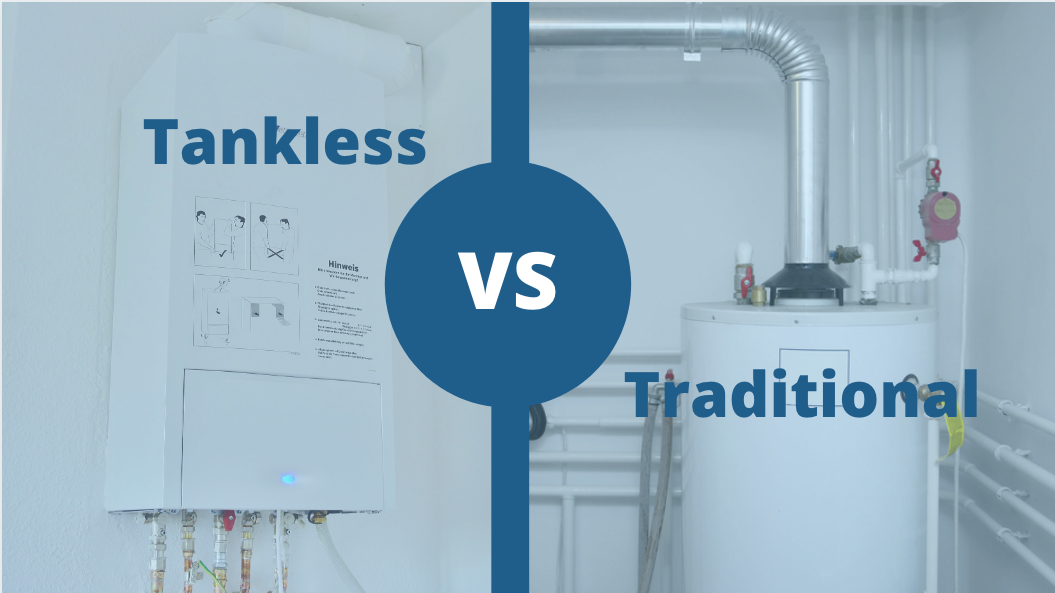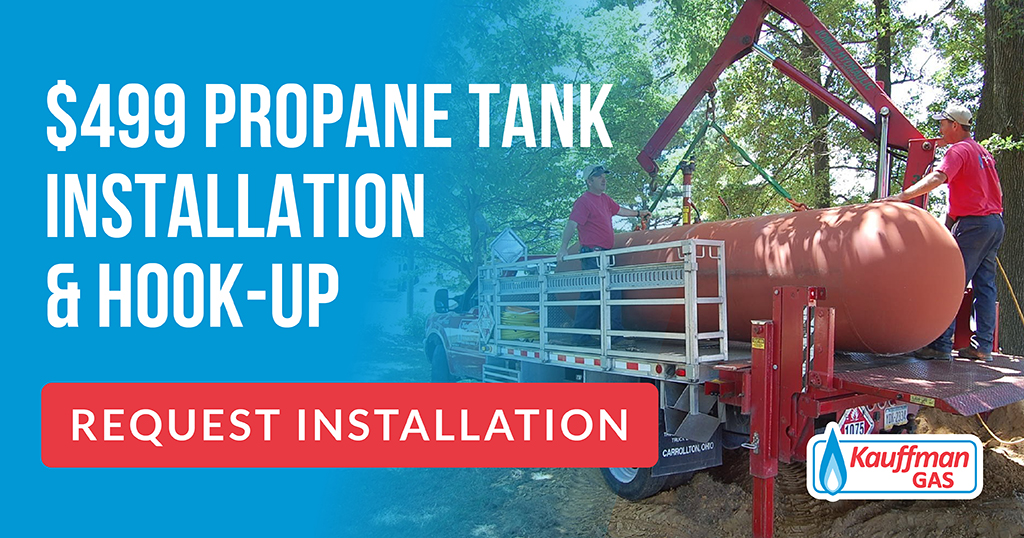We’re on a mission to find out a few things about one of the hardest working appliances in Chester County homes. Need a clue?
It’s what motivates you to get up on a cold winter morning. It keeps your home (and you) free of germs and dirt. It also makes quite a mess if you ignore it long enough and let its insides rust out.
Did you guess the water heater? Excellent! But our mission isn’t to dive into any old water heater.
We’re drilling down into the details and giving you the skinny on the tankless gas water heater.
By the end of this post, you should have enough information to decide which is the better water heater, tankless or tank.
Never Heard of a Tankless Gas Water Heater?
Okay, well have you heard of an on-demand water heater? That’s another name for the tankless type. Here’s how it works.
Tankless gas water heaters deliver hot water right to your tap or shower. There’s no storage tank filled with water waiting for a call to action.
In short, they work on a burner system. The burner heats the water, runs it through a heat exchanger, and gets it to you almost instantly. A tankless gas water heater uses propane, gas, or electricity, as its fuel source.
The Conventional Tank
Most homeowners know all about tank water heaters. You can’t miss them.
The large white or gray cylinder sits obtrusively in your basement or utility closet. They burp and gurgle 24/7, heating the cold water that comes from your home’s main water line.
Water from the mainline floods the tank, triggering a sensor in the tank’s base. This alerts the heating element to apply heat.
Tank-style water heaters do take a bit to heat your water, but they also keep plenty of hot water in the tank for your immediate use. If you run out of hot water, you’ve either used up your reserves, or your water heater needs attention.
Out of Sight Out of Mind
If you’re looking for a water heater solution that stays out of the way and out of view, the tankless heater is a great option. They’re installed in places where they don’t stick out like under sinks, in pantries, closets, or in under-stair storage areas.
Tank water heaters take up more space. They hold anywhere from 30-60 gallons of water, and most stand around 5 ft. tall. Popular installation areas are basements, utility rooms, and utility closets. In vintage homes, you may find a water heater in the kitchen—kind of hard to trick the eye into not seeing that one, right?
If you’re judging on looks and footprint, the tank loses.
Aside from looks, efficiency is the essential question homeowners should ask when evaluating tankless vs. tank-style water heaters.
Which Water Heater is More Efficient
If you ask the manufacturers of either style, they’ll tell you theirs is the better model for efficiency. Could it be that both styles work efficiently?
For homes where daily hot water consumption runs at around 41 gallons or less, tankless water heaters are 24%-34% more efficient than a standard tank water heater. If your household uses an average of 86 gallons per day, on-demand water heaters are about 8%-14% more efficient.
Because tankless gas heaters run on-demand, they use less energy overall.
Unlike the tankless style, your conventional tank water heater never stops running. It’s a constant energy consumer, even when you’re away from home and not using hot water.
Both styles can use energy efficiently, but it depends on how much hot water your household uses.
For homes that consume less hot water, a tankless water heater uses less energy. If your family uses hot water for multiple loads of laundry every day, runs the dishwasher, and takes a lot of showers, the conventional tank may perform better as far as energy savings.
Which Water Heater Is Easier to Install?
From an installation perspective, the tank-style wins hands down as the easier to install. You position the tank, connect it to the water and fuel supply and away you go. Okay, maybe it’s not done that quickly but in most homes, with a gas line already in place, it’s not difficult.
If you’re considering a DIY installation of a tankless heater, it may surprise you to discover changing from tank to tankless isn’t a simple swap.
Whoever installed your current water heater, likely didn’t set you up for retrofitting. Tankless water heaters have a higher demand for gas meaning they require a larger gas line, gas meter, and pipes. They also have different venting requirements.
The reality is neither is a plug-and-play appliance.
The good thing about the installation of either water heater is when you hire a professional installer, which we certainly recommend, you won’t need to worry about which one is easier.
Which Water Heater Lasts Longer?
Today’s tank-style water heaters last about 10-12 years. If you perform routine maintenance, you may get a few more years than that because you’ll slow down the development of sediment in the tank. Regular maintenance also helps curtail corrosion from wearing out valves and the tank bottom.
If you’re looking for longevity, the tankless gas water heater wins. They can last 20-30 years, with regular maintenance. Since they don’t constantly store water, they aren’t subject to corrosion or mineral buildup.
There is a caveat—if you live in an area with hard water, like most homes in northern Delaware and likely some in Chester County, tankless heaters can develop mineral issues, which is why maintenance is essential.
Tankless Gas Water Heater Cost
First, let’s look at the cost of a conventional tank-style water heater. Depending on the size of the tank, the average cost is $600-800.
The average cost of a tankless gas or propane water heater runs between $1000-$1500. If you need new plumbing, that’s extra.
The above prices are for whole-house systems. Some homeowners opt for a single service tankless model and those cost around $100-$200 each.
Which One Is Better?
When deciding which water heater is the better option, look at the entire picture.
Evaluate the cost of the unit, installation, maintenance, and energy savings before you determine whether the tankless gas water heater or the conventional tank is better for your household.
Whatever you decide, we’re here to take care of your fuel needs. Contact us today to set up a propane delivery service.

